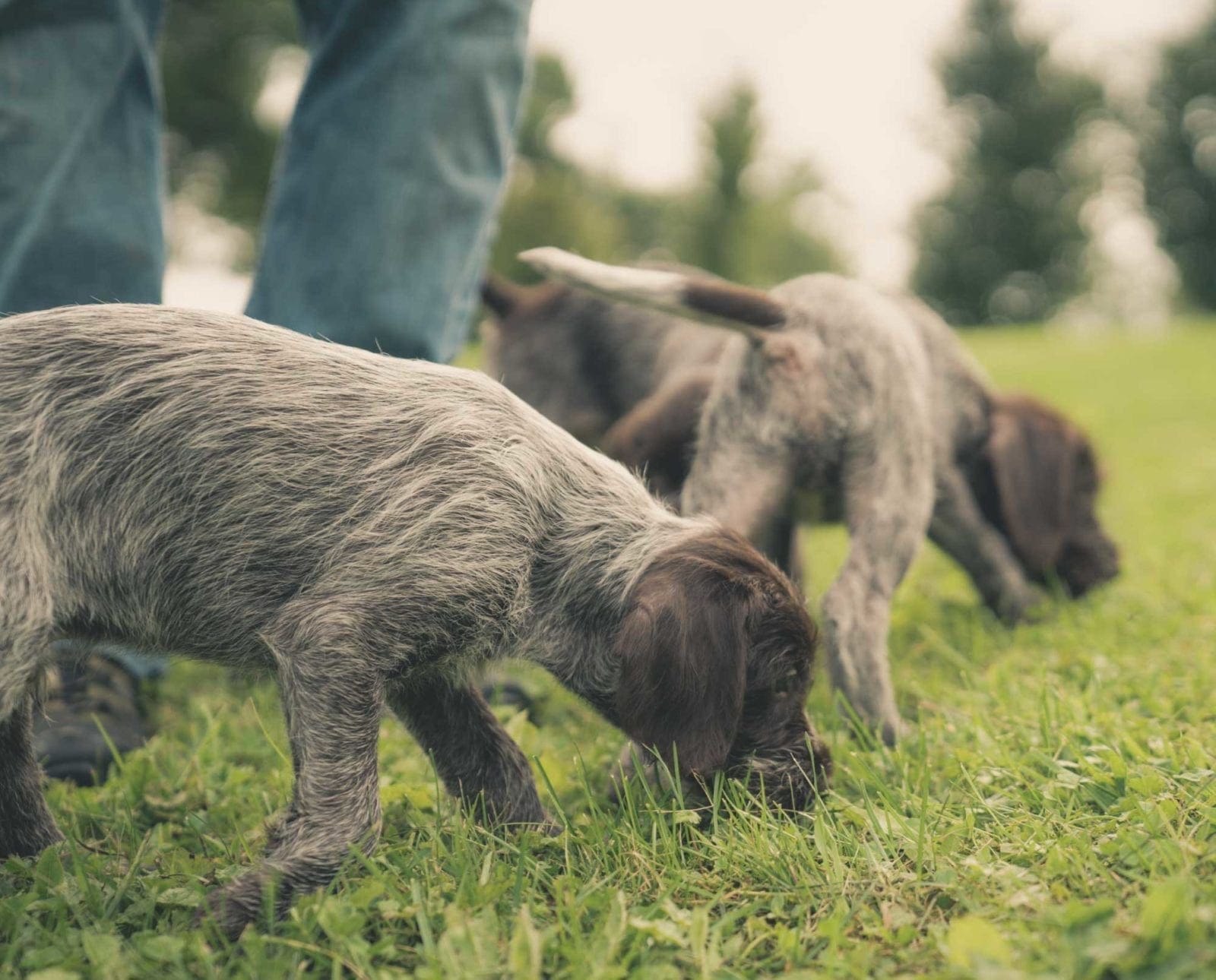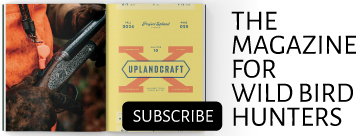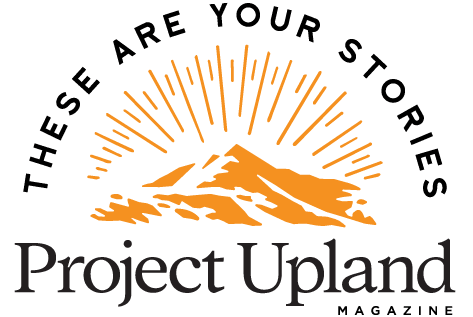Home » Hunting Dogs » Where to Start in Training with a Bird Dog Puppy
Where to Start in Training with a Bird Dog Puppy

Jason Carter is a NAVHDA judge, NADKC member, director of…
Building a foundation for a bird dog puppy through socialization and learning to be part of your pack
You did your homework, picked the right hunting dog breed, and found the breeder who provided you with the genetic package you dreamt of. On the drive home it hits you. Have I prepared for this new puppy? Now what? How do I start? You own the equivalent of a Ferrari but are unsure how to take it for its first spin without scratching it. Too often, folks are afraid to work with a little pup, and before they know it that cute little bundle of fur and teeth grows up and takes over their lives, chewing through slippers, trucks, spousal relationships, and every last thread of happiness. Before that happens, you need to answer the question, How do I start?
Listen to more articles on Apple | Google | Spotify | Audible
You just start, and you start on day one.
Learning as part of a pack
A misconception folks have is that their puppy is coming to them as a blank slate. In reality the mother spent two months teaching it boundaries and social cues. Providing it limits, with swift and absolute leadership. The puppy knows its place and who to follow as its protector and pack leader. It’s learned to get what it wants through following its nose. Even its siblings taught the pup lessons on pack order, limits and bite inhibitors. All lessons we should follow up on as soon as the pup enters our home.
When the pup arrives, you, your family and your pets become the puppy’s new pack. It’s an adjustment for all parties making proper introductions very important. Be sure to include socializing the puppy with the other dogs/cats in the house and with young children. Toddlers are the ultimate squeaky toy for puppies. They run away and make all kinds of exciting noises when bit. The child needs to be socialized to the new puppy as much as the puppy to him or her.
The puppy needs to learn early that you are the new leader, though it will absolutely test those waters in its relationship with you. Assuring them you are a good leader puts its mind at ease. A pack lacking an alpha complicates things. If allowed, your pup will attempt to step into that role. Puppies are sponges, rapidly sucking in life lessons during the first few months of existence. Most of what they need to know for life they will learn well before a year of age. Establish yourself as the leader early, take advantage of those learning instincts and just start training.
Socializing a bird dog with you and the world
A great place to start would be introducing your pup to the world around them. Show them it’s safe, inviting, and friendly. Explore new surroundings and people. Getting as many hands on the pup will help teach it to control its emotions. Puppies love to move and squirm in our arms. It may even bite, scream and fight to get down. Ride it out.
Early on your pup will want to stay close to you. Take advantage of these times and let them run free and learn to check back and track to find you. The puppy should never feel the need to run away as you are the provider of all things exciting. Teach the pup to be independent and how much fun it is to return. Introduce the whistle. Teach the pup to work within distraction.
Hand feeding sets you up to be the provider. It makes you very important to the pup. It also opens up endless training opportunities since the pup is hungry. The pup eagerly learns to control its mouth and allows you an opportunity to teach it to accept your intrusions — an important lesson for checking teeth as well as the early introductions to the hold process. It also gives us an opportunity to reward tolerance of us touching its feet, ears and head. It teaches them to accept nail cutting and examinations.
Also, socialize your pup by getting them into as many hands as possible. Get them used to collars, limits and leads. Make their beds and kennel a safe and pleasurable space. Teach them the rules of being a good citizen in your home. Most importantly, keep your pup engaged and busy, as a tired puppy makes for a happy life.
Teach them that fighting is an ineffective way of getting what it wants. Avoid rewarding this behavior through succumbing to their demands. If need be, sit down where it’s safe and win the battle. Take time each evening and make them relax, providing the pup with rules and limits, such as no barking, biting or squirming. Just relax. At first it will feel like torture for both of you, though in time they will learn. Teach them you are safe and fun to come to.
Use various rewards such as play, praise, touch, food and toys. Link basic dog commands and actions to those rewards when the pup learns they hold value. With young pups, follow the principle of rewarding the good and ignoring the bad. Also, teach them to tow a light line when on its daily run. Everything is of interest to a pup, so exposure to their hunting environment is essential. Be vigilant, as there are many dangerous hazards your puppy can get into out there.
Be cautious around adult dogs as a puppy is very susceptible to getting bit or hurt through aggression and rough play. Puppies lack the understanding of social cues and can end up severely injured as their young bones are very brittle. I’ve seen this happen on more than one occasion. Having a puppy in a cast, medicated for eight weeks, is a horrible experience.
Proper correction and reward
Bite inhibitors are another important lesson we can reinforce early. In the litter there were consequences to biting mom or its siblings. Try to react in a way that is comparable to the mother weaning its pups. While using a low tone, react negatively and include a corrective word such as “Bad” (“No” and “Whoa” being too phonetically similar). Similar to the mom, be quick and absolute. When the inappropriate behavior stops, let it know that all is good in the world. This is a great way to introduce the puppy to pressure and teaches it how to relieve it.
This type of corrective behavior is still fresh in the pup’s mind from the box and it will learn quickly to control its bite. Note that we are not stopping it from using its mouth; instead, we are teaching the pup how to use it properly. It’s important to our retrieving that we don’t steal this behavior, rather place limitations on it. Let them know it’s okay to put its mouth on you but it’s not okay to hurt you.
Also, be aware of your pup’s weight. Being overweight is tough on developing joints and bones. Base your measurements on how it looks and feels. This changes day to day requiring you to constantly adapt your portion sizes. If you are baiting, those treats are taken from the meal portion. Keeping your dog healthy, in shape and at the right weight prevents unnecessary wear and tear on the body. An important responsibility for every dog owner.
Housebreaking a bird dog puppy
Housebreaking is another important life lesson we need to teach. My father years ago taught me how to housebreak a pup. Take a magazine, roll it up as tight as possible and place it somewhere readily available. The second you see that pup squat to pee on your nice flooring, grab that magazine and as hard as you can, hit the side of your head, repeating the words, “I should have let it out, I should have let it out.” Magically in no time that pup learns to go outside. To be fair, a puppy has a very small bladder and requires frequent potty breaks. Incorporating a bell into this process helps it communicate its needs more clearly. Simply touch its nose to the bell before sending the pup out. It will figure it out in no time.
This is also a great moment to point out that you will regret not crate training your puppy. Its part of a dog learning how to settle and crucial to safe traveling for training, hunting, and any other reasons you are hitting the road. It helps create structure in a dog’s life, including when you are not home.
Read: Crate Training a Dog Can Solve Separation Anxiety Issues
These are just a handful of our developmental lessons to get you started. It’s important to remember that training begins from the moment you get the pup. It is woven into your daily interactions with them. Everything you do is, in essence, part of its training and learning. Don’t think of training as a block of time you have to work your pup. Instead, consider it part of your daily routines and interactions.
My pup needs to go out, work on “Come.” It’s eating something it shouldn’t, “Leave it.” You’re filling the food dish, “Whoa.” Simply playing ball or having them lay with you is all part of training. When you think of all the daily domestic interactions you have with your pup, you realize you are doing a considerable amount of bird dog training. Like anything, you get out only as much as you put in, so give it your all and train every day. The joy it will bring you and the bond that it creates will last forever.
Jason Carter is a NAVHDA judge, NADKC member, director of youth development, secretary of NAVHDA’s youth committee, clinic leader and trainer at Merrymeeting Kennels. He has been around versatile hunting dogs his entire life, literally! Born into the Carter family and Merrymeeting Kennels, he attended his first NAVHDA test in Bowdoinham, Maine, when he was just a year of age. Jason successfully trains, tests and breeds Deutsch Kurzhaars in both the NAVHDA and NADKC testing systems. Through his work at the kennel, Jason has had the opportunity to develop pointers, flushers and retrievers over the years. When October arrives he can be found with family and friends hunting throughout New England.




What breed is in the picture at the top of the article?
Those are wirehaired pointing griffons.
With the holiday season approaching, we’re planning a trip with our dog. What tips can you share for preparing a pet for a long car ride? What should we bring along, and how can we minimize stress for our dog?